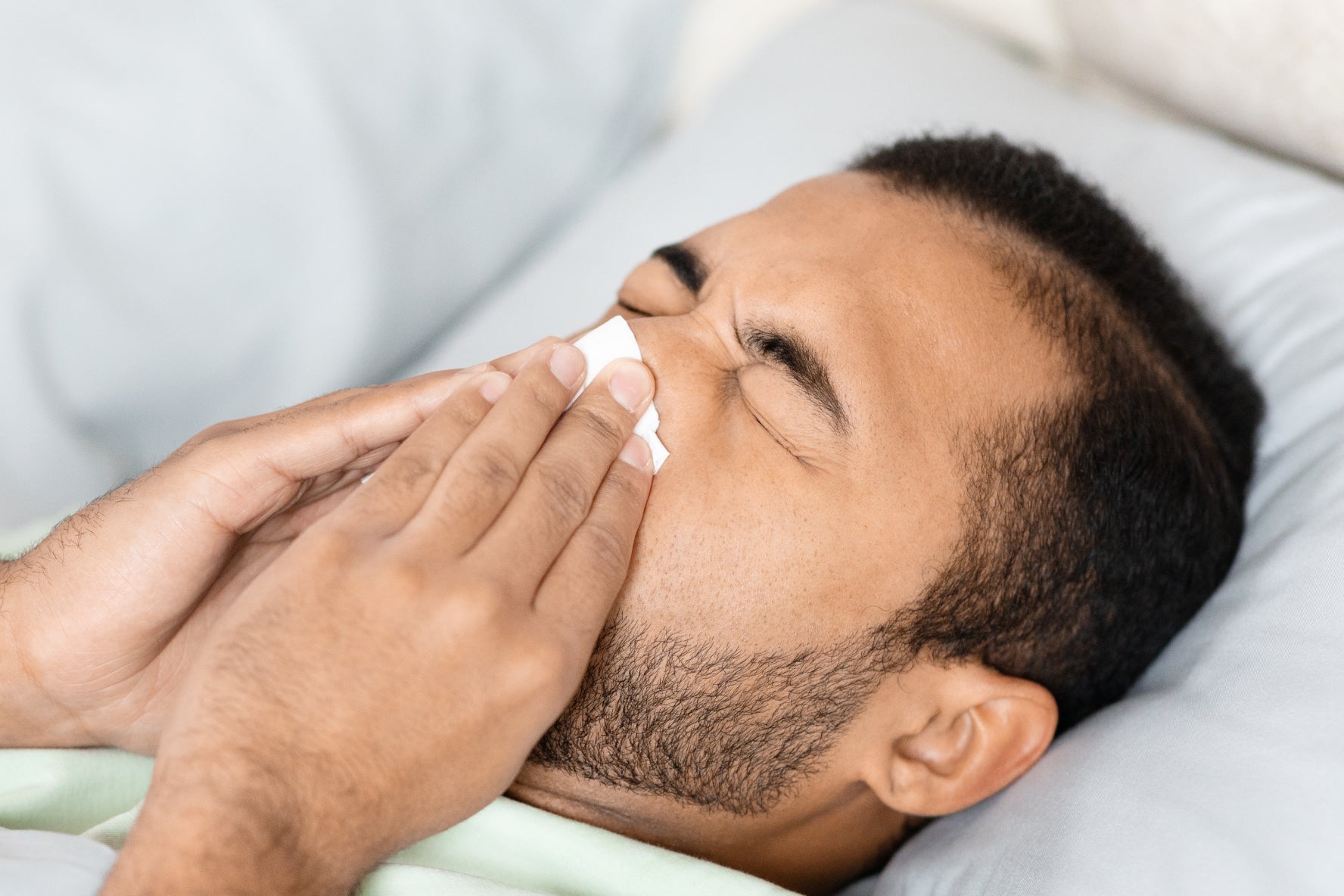Nasal Congestion at Night: Causes, Consequences, and What You Can Do About It
Few things disrupt sleep more than lying down and suddenly realizing you can’t breathe through your nose. If you’ve ever found yourself flipping from side to side trying to clear a stuffy nostril, you’re not alone. Nasal congestion at night is one of the most common and frustrating sleep issues—especially since it often feels worse when you’re horizontal. In this article, we’ll walk through what causes nighttime congestion, how it sabotages your sleep, and what you can do to finally breathe easier, rest better, and wake up refreshed.
Why Nasal Congestion Worsens at Night (Nose Breathing Benefits During Sleep)
Your nasal passages aren’t static—they respond to temperature, inflammation, allergens, and even gravity. When you lie down, especially on your back, blood flow increases to your head and nasal tissues, which can cause slight swelling and congestion.
Why Nighttime Matters
-
Gravity and posture: Lying down causes fluid to shift toward your head, which can make nasal tissues swell.
-
Dry air: Indoor air, especially with heating or A/C, can dry out your nasal passages and trigger inflammation.
-
Allergens in your bedding: Dust mites, pet dander, and other allergens can collect in pillows and mattresses, increasing irritation while you sleep.
These factors can turn mild nasal stuffiness into a full-on sleep disruptor. And when your nose is blocked, your body often switches to mouth breathing, which can cause snoring, dry mouth, and fragmented sleep.
Solution: Open your airways before bed with a warm shower, saline rinse, or better yet, nasal strips for sleep that gently lift the nasal passages for easier airflow all night long.
How Nasal Congestion Disrupts Deep Sleep (Sleep Breathing Aids That Help)
When your breathing is compromised, even slightly, your body has to work harder to get oxygen. That means your sleep isn’t as restful, even if you’re unconscious the whole time.
The Effects of Blocked Breathing at Night
-
Frequent waking: You may shift sleep stages or fully wake up when airflow becomes too restricted.
-
Snoring or mouth breathing: These can both disturb your sleep and your partner’s.
-
Reduced REM and deep sleep: Poor oxygenation means your body doesn’t spend as much time in the most restorative sleep phases.
This not only leaves you feeling tired in the morning but can also impact memory, immune function, and mood.
Solution: Support nasal breathing by using mouth tape for sleeping if you tend to breathe through your mouth, especially in combination with nasal strips. Together, they help promote full, deep nose breathing overnight.
Practical Tips to Fix Nasal Congestion at Night (Natural Solutions for Snoring)
Getting ahead of nighttime congestion is easier than you might think. By adjusting a few habits and your environment, you can breathe easier—without relying on medications.
Simple Ways to Reduce Nighttime Nasal Congestion
-
Use a humidifier: Adding moisture to dry air keeps nasal passages from drying out and becoming inflamed.
-
Wash bedding regularly: Reduce dust mites and allergens that can irritate your nose.
-
Shower before bed: Steam helps open airways and wash off outdoor allergens.
-
Stay hydrated: Dehydration thickens mucus, making it harder for your nose to stay clear.
-
Try nasal strips for snoring: They’re a drug-free, easy fix for mild congestion and help support nasal breathing throughout the night.
By addressing the root causes—like dryness, allergens, or poor airflow—you can reduce nighttime congestion and dramatically improve your sleep quality.
FAQ
Why does only one nostril get blocked at night?
It’s actually normal for your body to alternate nasal airflow every few hours—a process called the “nasal cycle.” But when inflammation or congestion sets in, one side may swell more, especially when lying on your side.
Are nasal strips safe to use every night?
Yes. Nasal strips for sleep are non-medicated and safe for daily use. They’re especially helpful for people with mild nasal blockages, allergies, or snoring caused by congestion.
Can mouth tape help with nighttime congestion?
Mouth tape for sleeping doesn’t clear your nose, but it can encourage you to breathe through your nose instead of your mouth. This helps reinforce healthy breathing habits and works best when paired with solutions like nasal strips or humidifiers.
Conclusion
Nasal congestion at night can rob you of the deep, refreshing sleep your body needs to function at its best. The frustrating part? It often sneaks up on you—getting worse when you lie down, affecting how you breathe, and ultimately reducing the quality of your rest. But you don’t have to just deal with it. With simple tools like nasal strips for sleep, mouth tape for sleeping, and a few smart adjustments to your environment and routine, you can finally enjoy clear, comfortable breathing and wake up truly rested.
Breathe easier tonight. Try our nasal strips for sleep and mouth tape for sleeping to clear congestion and wake up refreshed.


Read 0 comments